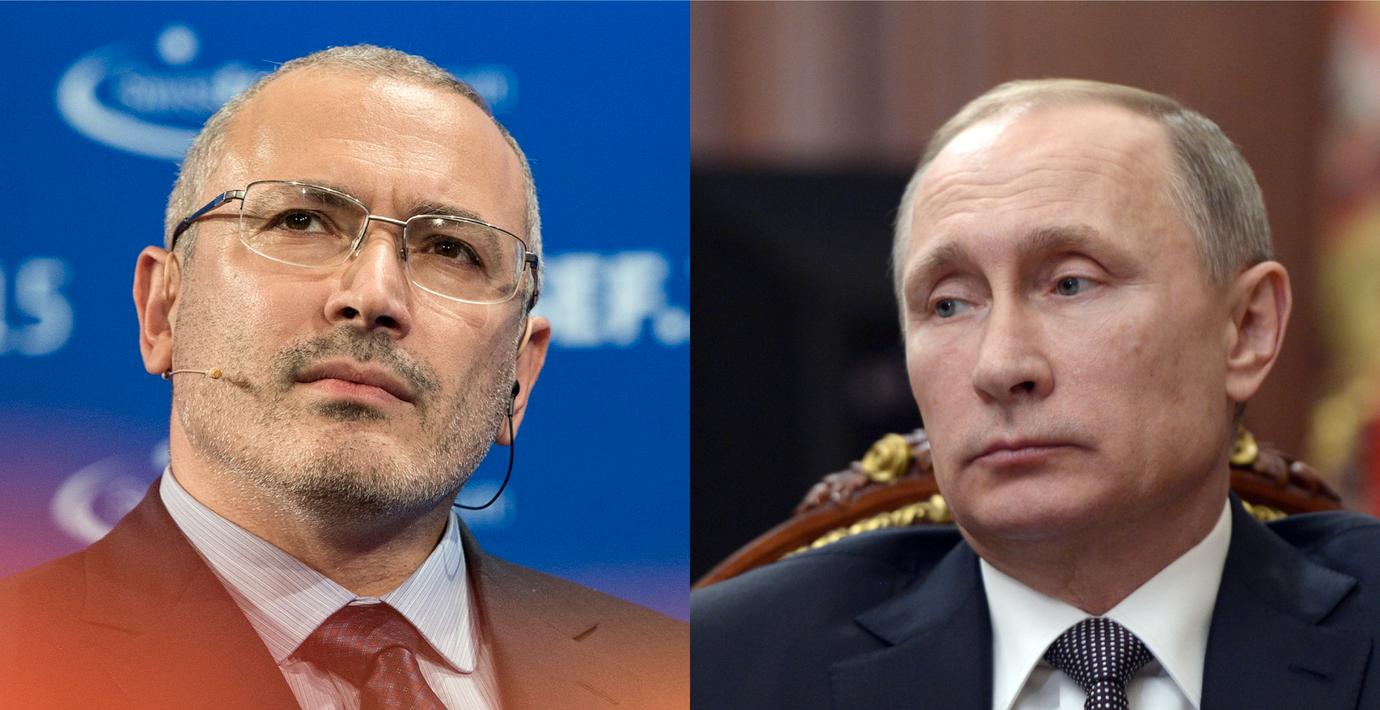bakgrund
Hans oljebolag Yukos förstatligades
Wikipedia (en)
OJSC "Yukos Oil Company" (Russian: ОАО Нефтяна́я Компа́ния Ю́КОС, IPA: [ˈjukəs]) was an oil and gas company based in Moscow, Russia. Yukos was acquired from the Russian government by Russian oligarch Mikhail Khodorkovsky's Bank Menatep during the controversial "loans for shares" auctions of the mid 1990s. Between 1996 and 2003 Yukos became one of the biggest and most successful Russian companies, producing 20% of Russia's oil output, as much as Libya or Iraq, and Khodorkovsky became an advocate of democratization, international co-operation and Russian reform. In October 2003 Khodorkovsky—by then the richest man in Russia and 16th richest man in the world—was arrested, and the company was forcibly broken up for alleged unpaid taxes shortly after and declared bankrupt in August 2006. Courts in several countries later ruled that the real intent was to destroy Yukos and obtain its assets for the government, and act politically against Khodorkovsky. In 2014 the largest arbitration award in history, $50 billion (€37,2 billion), was won by Yukos' former owners against Russia.
From 2003-04 onwards, the Russian government presented Yukos with a series of tax claims totaling US$27 billion (€20,1 billion). As the government froze Yukos' assets at the same time, and alternative attempts to settle by Yukos were refused, the company was unable to pay these tax demands. Between 2004 and 2007, most of Yukos's assets were seized and transferred for a fraction of their value to state-owned oil companies.
The Parliamentary Assembly of the Council of Europe condemned Russia's campaign against Yukos and its owners as manufactured for political reasons and a violation of human rights. Between 2011 and 2014 several court cases were won by the former company's management and investors against Russia or against the companies that acquired Yukos assets. The European Court of Human Rights ruled that there had been unfair use of the legal and tax system; the Arbitration Institute of the Stockholm Chamber of Commerce, an established neutral body used by Russia and the West since the 1970s for trade disputes, concluded that the government's action was an "unlawful expropriation" using "illegitimate" tax bills, whose effect was intended to "destroy Yukos and gain control over its assets"; and the Permanent Court of Arbitration in The Hague ruled unanimously upon awarding compensation of $50 billion for the company's assets, that Yukos was the target of a series of politically motivated attacks by Russian authorities that eventually led to its destruction, and that Russia had expropriated Yukos' assets in breach of the Energy Charter Treaty. (The treaty does not stop governments seizing or nationalizing commercial assets, but requires the investors to be fairly compensated if this happens. Russia never ratified the full treaty but these clauses were still legally binding under both the treaty and Russian law until 2029.)
According to the Permanent Court of Arbitration's ruling, the primary objective of the Russian Federation was not to collect taxes but rather to bankrupt Yukos, appropriate its assets for the sole benefit of the Russian state and state-owned companies Rosneft and Gazprom, and remove Khodorkovsky from the political arena.

